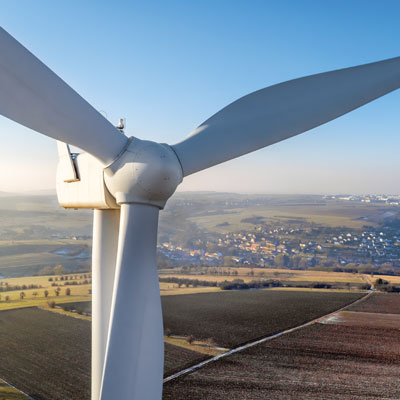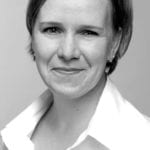Master’s in Food Politics and Sustainable Development

Master’s in Food Politics and Sustainable Development*
The politics of eating and producing food
Food is a critical issue in today’s global and European politics. The regulation of agriculture, food distribution, public health, environment and sustainable development are some of the issues covered by ESPOL’s master’s degree in Food Politics and Sustainable Development. This unique training programme in France, combining theory and practice, allows students to gain a better understanding of the issues related to the politics of food and farming, and acquire the skills necessary to access key professional positions in public and private organisations.
*This master is only available for an entry in 2nd year.
Overview
Food and agriculture are fields in which major global challenges arise. In 2050, the world’s population is projected to rise to 10 billion people; and they all need to eat. The various ecological and social problems of the modern food system represent additional challenges. Questions related to the organisation and regulation of our agri-food system are complex and include the production, distribution, accessibility, and consumption of food, as well as issues related to poverty, public health, animal welfare, science and technology, and trade. How would a sustainable food system look like, and how can it be achieved?
The master’s degree in Food Politics and Sustainable Development examines the ways in which public authorities (regional bodies, nation states, European institutions, UN agencies) and private actors (individuals, farming communities and organisations, transnational businesses, researchers, NGOs, etc.) shape and transform the agri-food system. While the production of food is initiated at local level, its distribution and consumption often have global implications. Understanding, analysing and acting upon these implications is key to sustainably steer, govern and transform our food system in the future.
Because these questions require to cross political and technical knowledge, the master’s degree in Food Politics and Sustainable development is organised in close collaboration with practitioners. It includes a partnership with ISA Lille, the renowned agronomy institute of Lille Catholic University; numerous interventions from agri-food professionals; and field trips to regional farms, food-related policy events, key food fairs such as the Paris International Agricultural Show, and food markets such as the Rungis Market, the biggest wholesale food market in the world.
Career opportunities
- Public administration at national and subnational level: ministries, regional and local authorities, but also other public administration agencies recruit experts in public policy.
- International and European organisations: the European Union, the FAO, the OSCE or the European Environment Agency.
- NGOs, Think Tanks, trade unions, interest groups and lobbies often recruit experts with backgrounds in political science and international affairs.
- Businesses are increasingly recruiting people qualified in international affairs.
- Academic career: students graduating from our MA can also access PhD programmes in order to pursue an academic career.
Sabine WEILAND
Course schedule
Semester 1 (M1)
Semester 2 (M1)
Semester 3 (M2)
Semester 4 (M2)
Core courses
| Agriculture and Rural Politics | 24h | 6 ECTS |
| European Food & Agricultural Policy | 24h | 6 ECTS |
| Food in the City | 24h | 6 ECTS |
Research courses
| Workshop: Academic Writing | 12h | 3 ECTS |
Optional courses (Choose 1)
| Introduction to Political Science* | 18h | 4 ECTS |
| Advanced Comparative Politics | 18h | 4 ECTS |
| Critical Approaches to International Relations | 18h | 4 ECTS |
| Public Policy Analysis | 18h | 4 ECTS |
Career development (Choose 1)
| Diplomacy in practice (EN) | 12h | 3 ECTS |
| Agriculture in practice | 12h | 3 ECTS |
| Digital Politics in Practice | 12h | 3 ECTS |
| Think tanks in EU Governance | 12h | 3 ECTS |
Languages
| French (FLE) or English ** | 16h | 2 ECTS |
| Optional extra language course (non-compulsory) | 16h | / |
Core courses
| Trade and Sustainable Development | 24h | 6 ECTS |
| Global Food Security | 24h | 6 ECTS |
| International Environmental and Climate Governance | 24h | 6 ECTS |
Research courses
| Introduction to Research Design | 18h | 4 ECTS |
Optional courses (Choose 1)
| Global Justice | 18h | 4 ECTS |
| Approches socio-économiques de l’agriculture | 18h | 4 ECTS |
| International Migration | 18h | 4 ECTS |
| EU Digital Policies in comparative perspective | 18h | 4 ECTS |
| Cybersecurity | 18h | 4 ECTS |
Career development
| Studytrip Rome | 30h | 2 ECTS |
| Career talks | 4h | / |
Languages
| French (FLE) or English ** | 16h | 2 ECTS |
| Optional extra language course (non-compulsory) | 16h | / |
Core courses
| Global Food Politics | 24h | 6 ECTS |
| Green Political Theory | 24h | 6 ECTS |
Research courses
| Political Science Research Approaches & Methods | 18h | 4 ECTS |
| Work-in-progress document | / | 2 ECTS |
| Statistics and the Political Sociology of Quantification | 18h | 4 ECTS |
Optional courses (Choose 1)
| The European Green Deal | 18h | 4 ECTS |
| African Politics | 18h | 4 ECTS |
Career development
| Professionalization workshops | 4h | / |
| One-day field trip | 8h | / |
| Wikifactory I: Research for society | 10h | 2 ECTS |
Languages
| French (FLE) or English ** | 16h | 2 ECTS |
| Optional extra language course (non-compulsory) | 16h | / |
Core courses
| Food Controversies | 24h | 6 ECTS |
Research courses
| Master’s dissertation | / | 13 ECTS |
| ESPOL-Lab seminar participation and students’ seminar participation | 12h | 1 ECTS |
Career development
| Internship | / | 6 ECTS |
| Wikifactory II: Research for society | 10h | 2 ECTS |
Languages
| French (FLE) or English ** | 16h | 2 ECTS |
| Optional extra language course (non-compulsory) | 16h | / |
* Compulsory option for students without a background in political sciences
** French (FLE) compulsory for non-francophone students. English compulsory for francophone students. In case the student is a native FR/EN (to be checked by Clarife), replace with other language of choice.
The course schedules are not contractual and are subject to change at any time by the teaching staff.



